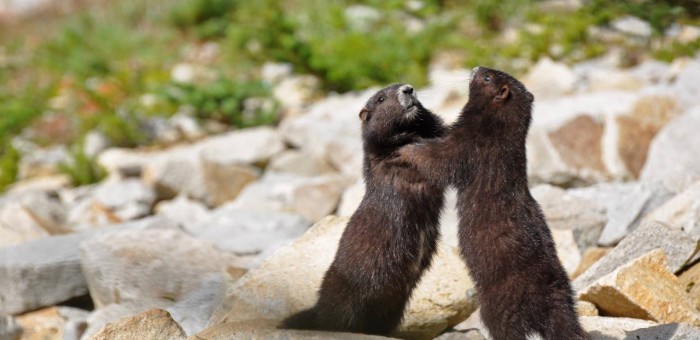Humans threaten one million species with extinction worldwide, B.C. still without any endangered species legislation
The Intergovernmental Science-Policy Platform on Biodiversity and Ecosystem Services (IPBES) today released its landmark assessment detailing the world’s declining state of biodiversity. Remarkably, British Columbia’s government has still not announced how it plans to deliver on its 2017 mandate to enact an endangered species law. Below I reproduced the text of our media release in response to the IPBES report.
Media Release
Humans threaten 1 million species with extinction worldwide, B.C. still without any endangered species legislation
For immediate release
May 6, 2019
VICTORIA, B.C. – One million of the planet’s eight million species are threatened with extinction, according to a comprehensive report released today from the Intergovernmental Science-Policy Platform on Biodiversity and Ecosystem Services (IPBES), a UN committee, and yet British Columbia’s government has still not announced how it plans to deliver on its 2017 mandate to enact an endangered species law.
“The report identifies habitat loss, sustainable exploitation, climate change, and pollution as the main culprits, which are all areas that we can and should focus on in British Columbia to protect our at-risk species and the health of our province,” B.C. Green Party Leader Andrew Weaver said.
“I drafted and introduced an endangered species act for British Columbia twice in the legislature, most recently in November 2017. British Columbia is the most bio-diverse province in Canada, but it is also home to more at-risk species than any other province with 1,807 species at risk of extinction. In addition to detailing policies to identify, protect and rehabilitate at-risk wildlife populations and habitats, my Endangered Species Act introduced proactive measures that would prevent healthy species from declining in the first place.”
The world is in the midst of the sixth great global extinction event, and humans are the driving force. Proactive protection and active restoration are key to the resiliency of British Columbia.
Humans are part of nature and inextricably linked to its deterioration. As stated in the IPBES report, some 70 percent of drugs used for cancer treatment are natural or synthetic products linked to nature, and 75 percent of global food crops rely on animal pollination. In B.C., in 2017 nearly 10,000 people were employed in fisheries-related jobs and other 141,000 worked in forestry-related positions.
“If our ecosystems collapse, so does our economy,” Weaver said. “We need biodiversity for pollination, flood prevention, water and air purification, climate change resiliency, and social and cultural well-being.
“The IPBES report makes it abundantly clear governments must act urgently to change the trajectory of global extinction. My B.C. Green caucus colleagues and I will fight for the same in British Columbia.”
-30-
Media contact
Macon McGinley, Press Secretary
+1 250-882-6187 |macon.mcginley@leg.bc.ca
Comments are closed.




